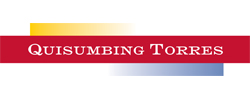19 June, 2016
Republic Act No. 10844 of the Department of Information and Communications Technology Act of 2015[1](“DICT Act”) was signed into law on 23 May 2016 and will take effect fifteen (15) days after its publication in at least two (2) newspapers of general circulation. The passage of the law was met with praise and relief from various sectors, after years of lobbying and petitioning by the public sector and various interest groups[2]and a few weeks before the culmination of the term of office of President Benigno Simeon Aquino III.
Salient Features
The DICT Act created the Department of Information and Communications Technology (“DICT”) which is mandated to be the primary policy, planning, coordinating, implementing and administrative agency of the Executive Branch of the Philippine Government, and is tasked to plan, develop, and promote the national Information and Communications Technology (“ICT”) development agenda.[3]
The new law also renames the existing Department of Transportation and Communications (DOCT) to Department of Transportation, and abolishes all of its agencies and units dealing with communications such as the National Computer Center (NCC), National Telecommunications Training Institute (NTTI), Information and Communications Technology Office (ICTO), Telecommunications Office (TELOF), and the National Computer Institute (NCI). The powers, functions, appropriations, personnel, and property of these agencies are transferred to the DICT. Existing agencies pertaining to ICT are also attached to the DICT for policy and program coordination, such as the National Telecommunications Commission (NTC), National Privacy Commission (NPC), and Cybercrime Investigation and Coordination Center (CICC).[4]
The DICT shall be composed of a Secretary, three (3) undersecretaries, and four (4) undersecretaries, all of whom shall be appointed by the President. The law requires that they shall possess at least seven (7) years of experience in any of the following fields: information and communications technology, information security management, e-commerce, human capital development in the ICT sector, cybersecurity, data privacy, or information technology service management.
Relevant Expectations
The enactment of the DICT Act has been heralded as a “revolutionary act which may usher in the transformation of the Philippines into a full “full-fledged electronic republic.”[5] Businesses in the Philippines may expect more focus on the ICT sector from the Philippine Government and a more comprehensive and effective regulation of ICT services. In more concrete terms, these may translate to the following in the long run:
- More efficient and expedited delivery of government services, e.g. permit/license applications and information requests, resulting from the integration of the databases of various government agencies, agency networking linkages, and expansion of the government’s ability to conduct activities electronically;
- Closer regulation and monitoring of major players in the telecoms industry which may result in faster and cheaper internet connectivity, especially considering the President-elect Rodrigo Duterte’s recent threat to Philippine telecom companies to improve their services[6] and the fact that the Philippines ranks among the countries in the world with the slowest and most expensive Internet connection[7];
- A streamlining of ICT regulations issued by the agencies of the DOTC, such as the NTC, which would mean clarity in compliance by the citizenry and efficiency in enforcement by the regulators;
- Expedited issuance of the much-awaited implementing rules and regulations of the Data Privacy Act as mandated by the DICT Act itself;[8] and
- Promotion by the government of trade and investment in the ICT and ICT service sectors such as telecommunications and broadcast information operators and offshoring and outsourcing.
Actions to Consider
Clients are advised to be more exacting in ensuring compliance with ICT laws such as the Cybercrime Prevention Act and Data Privacy Act. This will include the review of existing data privacy and information security policies and measures for entities or organizations which handle personal information, or to implement said requirements if there are none in place.
The DICT and attached agencies are expected to be more vigilant in enforcing these laws compared to their precursors.
[1] REPUBLIC ACT NO. 10844. AN ACT CREATING THE DEPARTMENT OF INFORMATION AND COMMUNICATIONS TECHNOLOGY, DEFINING ITS POWERS AND FUNCTIONS APPROPRIATING FUNDS THEREFOR, AND FOR OTHER PURPOSES.
[2] Industry lauds signing of DICT law, Interaksyon, updated 25 May 2016, http://www.interaksyon.com/infotech/industry-lauds-signing-of-dict-law; ‘Parting gifts’, Journal Online, last updated on 1 June 2016, http://www.journal.com.ph/editorial/newsdesk/parting-gifts.
[3] Sec. 4 of R.A. 10844.
[4] Sec. 15 of R.A. 10844.
[5] DICT to make PHL an electronic republic, Senator says, Philippine Information Agency, last updated on 25 May 2016, http://news.pia.gov.ph/article/view/1141464069722/dict-to-make-phl-an-electronic-republic-senator-says.
[6] Duterte warns telcos: Shape up or face foreign competition, CNN Philippines, last updated on 24 May 2016, http://cnnphilippines.com/business/2016/05/23/Duterte-to-telcos-improve-Internet.html.
[7] Philippines has 7th slowest LTE speed in the world — report, CNN Philippines, last updated on 8 February 2016, http://cnnphilippines.com/news/2016/02/08/philippines-lte-speed-slowest.html.
[8] Sec. 21 of R.A. 10844.
For further information, please contact:
Bienvenido Marquez, Partner, Quisumbing Torres
bienvenido.marquez@quisumbingtorres.com

.jpg)




